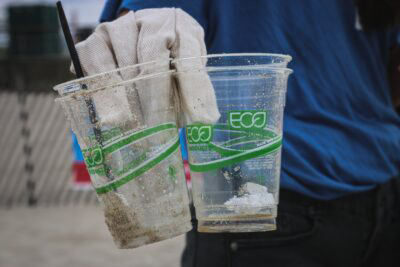Dozens of companies claim they’re “going green.” The phrase is being thrown around so often, it’s hard to identify which companies really are taking measurable steps to reduce the effects of their product on the environment, or if they’re simply, greenwashing. Our goal is to illuminate some of the mistruths that are promoted by companies who provide misleading information about how a product is “environmentally friendly.”
So, how do you spot greenwashing? Here are a few tips to help see through all that pretty packaging to find the truth. Firstly, look for vagueness within the company or product. Companies will claim that they’re “going green” without laying out verifiable proof in their materials. The reluctance to put forth detailed information about what they’re doing raises questions – are their products benefiting the environment? Where’s the proof?
Secondly, look for a hidden trade-off – companies suggest a product is green based on a single environmental attribute, but might be hiding the whole truth. For example, using a paper straw is considered going “green,” but to manufacture that straw, we are actively contributing to a huge problem – deforestation. According to The World Counts, 40% of the world’s commercially cut timber is used for paper production. And over 30 million acres of forest are destroyed annually, which also adds to the increasing list of endangered species that live in forests, specifically the Amazon Rainforest. Not to mention, it takes significantly more water to produce a paper straw than a plastic straw (about four times more). Think to yourself what’s the catch?
Finally, the third is claiming they are part of the “natural” movement. It is important to recognize that natural does not always equate to good. For example, viscose (a fiber made from natural resources) is often branded as “natural” and eco-friendly, but 150 million trees are cut down every year to make it. The sad truth is there are countless “eco-friendly” products and companies that are greenwashing consumers into believing they’re helping environmental causes, when the reality is actually the opposite.
Made From Stone is not perfect… yet, but we are committed to being honest about the capabilities of our technology. We are working toward the perfect circular package solution for the future, but right now Okeanos offers the best solution available on the market today; a technology that can be affordably and easily adopted worldwide, replacing a significant portion of the plastic in packaging with naturally occurring stone. Our calcium carbonate is extracted from the environment, transformed into our compounds, and then manufactured into packaging. After anywhere from six months to three years, the packaging degrades back into stone where it’s recycled through the environment, ready for use again, and again. Plastic produces roughly four kg of CO2 per kg used, which creates a large carbon footprint. Our stone only creates 0.075 kg CO2 per kg, and has absolutely no footprint on degradation because it’s already in its natural state. That’s a pretty huge improvement.
Here at Okeanos, we feel green isn’t “safe” anymore. It doesn’t hold the same value as it used to. We want to introduce a new word that is representative of true sustainability. You’ll notice a Coral stripe on all of our products. This is representative of coral reefs, the lifeblood of our oceans, so now, let’s go coral because coral is the new green.

